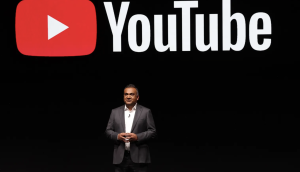The Beijing Olympics were supposed to be the event where China, as the centre of the world’s attention, would accept the torch as this century’s superpower.
Everything was meticulously planned and thought through, including building massive and breathtaking infrastructure, delivered a year ahead of schedule, fielding an elite team of athletes to bring home the gold and amassing a war chest fueled by record sponsorship dollars as multinationals salivated over unbridled, passionate and live access to a marketplace on steroids. All within a command and control management style that China consistently executes to precision as it moves its economy and 1.3-billion population from socialism to capitalism.
What the Chinese government didn’t realize was that the Olympics are a two-way lens – that the same platform it uses to bask in glory can also attract special interest groups, who are using the exponential power of viral media to draw attention to their causes and the role China’s political agenda plays in confounding them.
Caught in this vise are the Olympic sponsors who have paid out millions of dollars in sponsorship fees, plus billions of dollars in amplification fees. Their boardrooms must be buzzing as strategists try to find some wiggle room.
If I believe human rights violations are happening in Darfur or Tibet, do I make my decision on moral grounds and abandon my Olympic programs? In doing so, I win over many of the consumers in my developing markets, but I royally piss off the consumers and the Chinese government in my most important emerging market.
Do I try to isolate the Olympics as a sports competition, an island independent of political agendas and human rights issues, and hope the protests die down? Do I hope that the IOC, which continues to set new and once unattainable benchmarks for rights fees, emerges from hiding and invests some of my dollars to properly frame the issues and find solutions?
The answer can be found with your consumer, not your marketing team, your government relations people, your shareholders or even the size of investment you’ve made. If you believe this is simply a handful of anarchists buzzing the web to advance their cause, then move forward with your Olympic programs.
But I personally don’t think that’s the case. I believe what your consumers are telling you is that they now have a voice of global proportion, a voice that can’t be smothered by spin doctors, borders, elite security forces or even time. That voice becomes deafening as it is digitally enabled and swirls around the world, collecting images, commentary, evidence and an ever-growing community of contributors. Conversations that started with Tibet and Darfur will cross over to China’s environmental record, its treatment of workers and animals, its foreign policy and every other cause imaginable.
This is the voice of billions of consumers, who more and more are basing their choice of brands not simply on their immediate needs, but on what a corporation stands for, what its moral ground is to consumers and their planet.
It’s a tragedy that this year’s Olympic Games are being hijacked by a sponsoring nation looking to advance its political agenda, and by special interest groups pushing their cause agendas. But it’s also a reality marketers cannot escape. The solution? Do what’s right, not just what’s right for you.
Tony Chapman is founder and CEO of Toronto-based Capital C.























